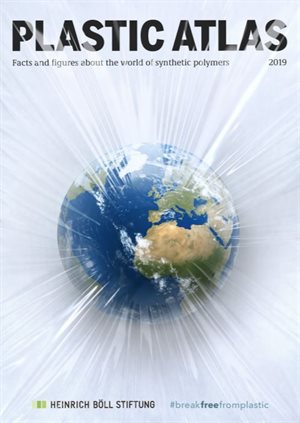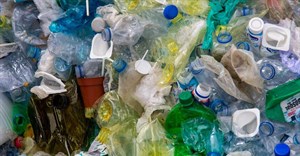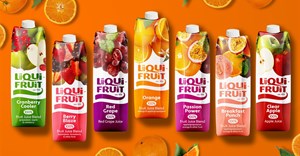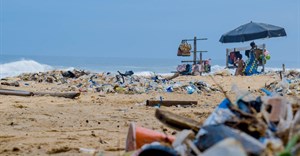Plastic Atlas highlights scale of global plastic pollution crisis

Plastic Atlas highlights the scale of the crisis and the global impacts of plastic production, consumption and disposal on other key global challenges such as human health and the climate crisis. It also outlines the role of plastic for key industrial sectors, such as agriculture and tourism, and describes the corporate interests and drivers behind plastic. Finally, the atlas presents an overview of key plastic-free regulations, zero-waste solutions and a snapshot of the growing global movement working towards a future free from plastic pollution.
Petrochemical industry set to increase plastic production
The Heinrich Böll Foundation’s president Barbara Unmüßig called for global action to address the crisis at its source: “A ban on single-use plastics makes sense, but will not be sufficient to end one of the biggest environmental crises of the planet. Plastics began as a waste product of the petrochemical industry... Instead of cutting down on this part of the business, they have clear targets to increase plastic production over the coming years.
"The unlimited availability of cheap oil and gas as raw materials for plastic production prevents effective recycling strategies and blocks a real circular economy. Regional and global politics must hold the plastic industry accountable and define a clear and strict framework for the reduction of overall plastic production and consumption. However, circular-economy strategies are needed to make a lasting impact,” Unmüßig emphasised.
Lili Fuhr, head of the International Environmental Policy Division of the Heinrich Böll Foundation and project leader for Plastic Atlas, said: “Since 99% of all plastics are made of fossil fuels and produce enormous amounts of greenhouse gas emissions taking into account the entire lifecycle of plastic, it is clear that the solutions to the plastic and climate crisis need to go hand in hand. The petrochemical industry is planning a massive expansion of the plastic production infrastructure to flood the global market with yet more waste and toxins. Governments in Europe and North America must not allow this expansion to go ahead. As a first step, the EU must work to ban the import of fracked hydrocarbon feedstock for plastics from the US.”
Role of waste pickers
Often seen as the dumping ground for plastic waste, the document is equally relevant to countries in the Global South, including the Southern African region. Niven Reddy, a campaigner for groundWork who acts as coordinator of GAIA and the Break Free From Plastic movement in South Africa, highlights the role of waste pickers in waste management structures. “Particularly in Africa, where basic waste collection is not provided in many parts of the continent, waste pickers provide the invaluable service of diverting tonnes and tonnes of materials from the environment.”
Reddy referred to the example of the door-to-door operations by waste pickers as part of the Vaal Park project in Sasolburg (South Africa): “Having separation at source is a fundamental step in moving a municipality or town towards zero waste.”
The Plastic Atlas further showcases the brand audit activities that the Break Free From Plastic movement has been engaging in for the past two years, directly aimed at exposing the brands responsible for producing packaging designed to be thrown away.

















